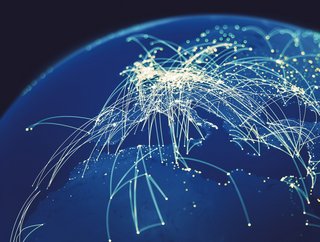Schneider Sustainability Impact report sees targets exceeded

Schneider Electric has published its fourth Schneider Sustainability Impact, which measures progress towards its sustainability commitments for 2018 to 2020, in line with the COP 21 and United Nations objectives.
With a total score of 6.10 out of 10 at end-December 2018, the Group exceeded its Schneider Sustainability Impact target of 5 out of 10 for the end of 2018. 2018 turnover of Schneider Electric's Energy & Sustainability Services is up 13.8% compared to 2017 and 45.7% of Schneider Electric's sales fall into its new Green Premium ecolabel. Meanwhile, 75% of Schneider Electric employees are covered by the Group's new Global Family Leave Policy
Commenting on the results, Gilles Vermot Desroches, Sustainability Senior VP at Schneider Electric said: "…the 21 objectives of our Schneider Sustainability Impact have demonstrated an excellent performance in 2018, we have decided to raise the level of our ambitions. Therefore, we will accelerate the implementation of our action plans on key challenges such as climate change, biodiversity, development or health. Recognitions we received (*) in 2018 all incite us to continue our efforts and to drive the sector forward in picking up those challenges".
Schneider has also been featured among the World's Most Admired Companies by Fortune magazine, as part of the CDP Climate A list for the 8th consecutive year and also ranked in the Global 100 Most Sustainable Corporations in the World by Corporate Knights for the 7th consecutive year.
-
Insight from Siemens: Delivering world-class sustainable buildings
-
Tate & Lyle examines stevia supply chain sustainability with Earthwatch and Sweet Green Fields
-
COFCO International joins sustainability group WBCSD
- Read the latest edition of CSO Magazine, here
Breakdown of the Schneider Sustainability Impact report
Climate:
The "CO2 efficiency in transportation" indicator registers a CO2 emission increase by 1.8% in 2018 compared to the -1% target. This is mainly due to an increase in air freight in Q1 2018 in our ITD business, and an increase of CO2emissions in North America in Q1 and in Q2 due to a high level of domestic air freight.
The "increase in turnover for our Energy & Sustainability Services" indicator shows very strong performance at +13.8% in 2018. The high growth is boosted by the energy efficiency business with the public sector in the US, and by key wins in the cleantech business. The energy sourcing business is contributing to the growth as well. Energy & Sustainability Services targets a 25% increase in sales in 2020 compared to the 2017 baseline.
Circular economy:
The "sales under our new Green Premium program" indicator's result was 45.7% for the fourth quarter of 2018. Schneider Electric's Green Premium ecolabel was upgraded in 2018 to be more customer focused. By adding environmental claims and through collaboration with external organizations, Schneider Electric is able to deliver value propositions that support its customers' own sustainability goals. With the environmental information available through its Green Premium ecolabel, Schneider Electric has helped customers to achieve Green Building certifications. After products, the scope of the ecolabel will be extended as of 2019 to include services and software.
Health & Equity:
The "employees working in countries that have fully deployed our Family Leave policy" indicator's result is presented for the first time this quarter. 75% of the Group's employees are covered by the new Global Family Leave Policy. 59 countries, including seven of Schneider Electric's top ten operating locations (China, France, India, Mexico, Spain, the UK, and the US) fully implemented this policy within its first year of deployment. The Global Family Leave Policy is industry leading in its scope and supports the Group's employees worldwide by providing paid personal time during moments when it matters the most, enabling them to better manage their unique life and work. The policy features global minimum paid leave standards for primary and secondary parental leave, care leave for a family member that either needs elder care or care for a serious health condition, and bereavement leave for a death of an immediate family member. The Group has actively chosen to define "leave" and "family" in an inclusive way, recognizing that definition of family, life and work are changing every day.
Ethics:
The "suppliers under Human Rights & Environment vigilance received specific on-site assessment" indicatorreaches 155 audits at the end of 2018. In alignment with the Group strategy and vision, and to comply with the 2017-French law concerning the Corporate Duty of Vigilance, Schneider Electric committed to implementing a vigilance plan. This includes identifying and managing suppliers that are most exposed to risks in terms of labor practices, health & safety, and environment. In early 2018, a global supplier risk mapping has been performed with a recognized third-party expert mapping tool (Verisk Maplecroft) available through Schneider Electric's partnership with the Responsible Business Alliance (RBA). The Group's risk management process includes a number of prevention and control actions down to on-site audits for 300 of these suppliers in 3 years, chosen according to their level of risk and the procurement volume.
Development:
The "underprivileged people trained in energy management" indicator continues to grow with 196,162 people trained in more than 45 countries. The program started in 2009 and aims to reach an additional 150,000 people within 2 years and a total of 1 million by 2025. With the support provided, trainees can access a skilled job or start a business and improve their prospects in life, contributing to better access to modern and reliable energy in their community. Today, the major challenge of the program is to multiply the impact of actions by pursuing a long-term partnership policy with local and global players able to replicate the projects. Three priorities guide the coming years: entrepreneurship, the integration of women into the energy professions, and the training of trainers. One of the major partnerships is with IECD (European Institute of Cooperation and Development) which enabled the opening of training centers in Lebanon, Morocco, Egypt, Nigeria, Ivory Coast and Vietnam.






